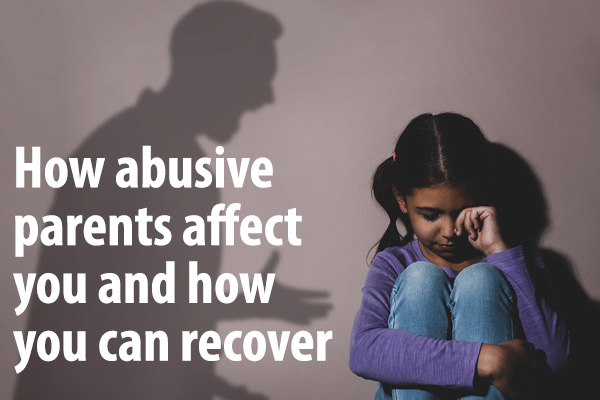
About this course
If you seem to attract disordered relationships, if you always feel anxious, depressed or hypervigilant, if you have a deeply rooted sense of shame, maybe your issues go way back — to your parents.
It’s well known that physical or sexual abuse harms children. What if your family wasn’t violent, but chaotic? Maybe your parents lacked empathy. Maybe they pit family members against each other. Or maybe, when you were young, your parents demanded that you take care of them. Does that affect you? The answer is yes — profoundly.
In this webinar, Mandy Friedman, LPCC-S, explains the effects of damaging parental behavior, and what you can do about it now, as an adult. Should you seek therapy? Should you go No Contact with your parents and other family members? Are you obligated to care for your disordered parents in their old age?
Overcoming an abusive or disordered childhood is difficult, but achievable. Mandy tells you how to start.
Highlights
- 27 behaviors of abusive parents that damage their children
- How children of abusive parents unconsciously repeat old patterns in new relationships
- Why children of abusive parents feel unworthy of love and happiness
- How to determine whether your therapy should include family members
- Overcoming the guilt of going No Contact with your abusive parents
About the instructor Mandy Friedman
 Mandy Friedman, LPCC-S, CCDVC, CCTP is a licensed professional clinical counselor, certified clinical domestic violence counselor and clinically certified trauma professional. Mandy is the creator of the educational program S.N.A.P. — Survivors of Narcissistic and Abusive Personalities. This program teaches survivors and concerned loved ones about abusive personalities, targets of abuse, abusive relationships and life in recovery from abuse.
Mandy Friedman, LPCC-S, CCDVC, CCTP is a licensed professional clinical counselor, certified clinical domestic violence counselor and clinically certified trauma professional. Mandy is the creator of the educational program S.N.A.P. — Survivors of Narcissistic and Abusive Personalities. This program teaches survivors and concerned loved ones about abusive personalities, targets of abuse, abusive relationships and life in recovery from abuse.
In her private practice, Clermont Mental Health, Mandy specializes in treating survivors of Cluster B personalities. She is also familiar with the role of addiction and substance abuse in abusive relationships. Mandy’s clients are often in need of trauma-informed care as part of their recovery. This has led her to become an specialist in the topic of Complex Post Traumatic Stress Disorder (C-PTSD). To help her clients, Mandy utilizes mindfulness based cognitive therapy (MBCT), cognitive behavioral therapy (CBT) and psycho-education.
Mandy is a survivor of abuse and has first-hand knowledge of what survivors endure in abusive circumstances and living a healthy life after abuse.
Cost and credits
The cost for this course is only $37.50 for 90 minutes of instruction. Once you purchase the course, you can access it online as long and as often as you want.
Although this course does not award continuing education credits, you will be able to download a certificate of achievement upon completion.
See all Lovefraud webinars by Mandy Friedman, LPCC-S. Save 15% when you buy two or more — use coupon code Recovery15. Save 31% when you purchase the Comprehensive 8-part Recovery Series.
Learning objectives
After this course, you should be able to:
- Identify parental behaviors toward you or your siblings that is or was abusive
- Describe psychological, emotional or physical conditions caused or exacerbated by abusive parenting
- Enumerate steps survivors can take to advance your own recovery
- Evaluate survivors’ obligations for caring for abusive parents in their old age
- Describe ways you, as a survivor, can protect yourself when No Contact is not an option
Program agenda for How abusive parents affect you and how you can recover
75 minutes instruction
- How do disordered parents psychologically and emotionally damage their children?
- Lacks empathy and emotional intelligence (especially during key developmental moments)
- Chaotic and inconsistent
- Sabotaging potentially healthy/supportive relationships
- Abandons them in moments when their children need protection
- Requiring child’s immediate attention (often insisting on face-to-face contact)
- Passive aggressive is their main mode of communication
- Pits siblings/family members against each other, sowing seeds of mistrust
- Purposely destroys children’s self-concept/perceptions of the self
- Enjoys “bursting your bubble”
- Nicer to other people’s children/strangers than their own children/family
- And more …
- What conditions can be seen in adult children who had psychopathic/disordered parents?
- Interpersonal effects
- Depressive tendencies
- Anxiety, perfectionism and issues with control
- Maladaptive/self-defeating coping strategies
- Hyperarousal state, easily startled, reactive
- Isolation
- Stress-related medical problems
- Exhaustion
- Deeply rooted sense of shame
- Problems sleeping
- How can survivors address and overcome their upbringing?
- Should survivors seek therapy?
- What steps can survivors take on their own?
- Should survivors go No Contact with their parents?
- Do survivors also need to protect themselves from other family members?
- Should survivors care for their parents in their old age?
- If No Contact is not an option, how do survivors protect themselves?
15 minutes questions and answers
Maybe your depression, anxiety or hypervigilance go way back. If your parents were abusive or disordered, here’s how to start overcoming the damage.
Customer reviews
Add your review — click and scroll down
How abusive parents affect you and how you can recover — $37.50

